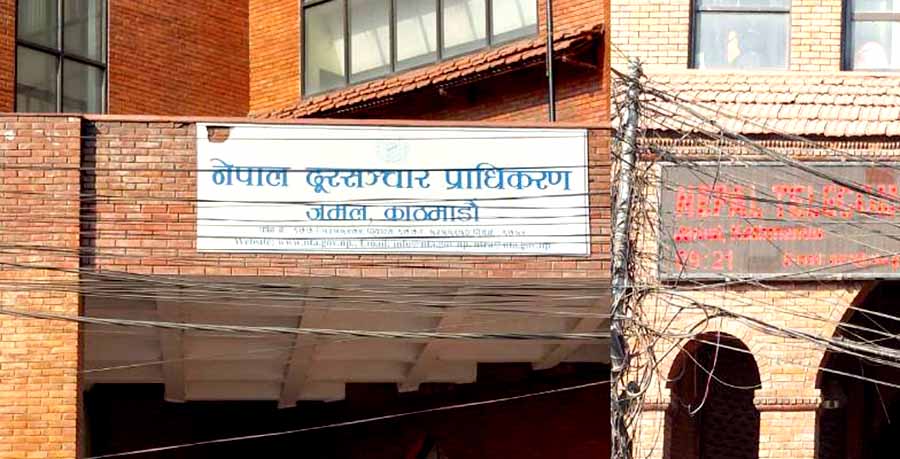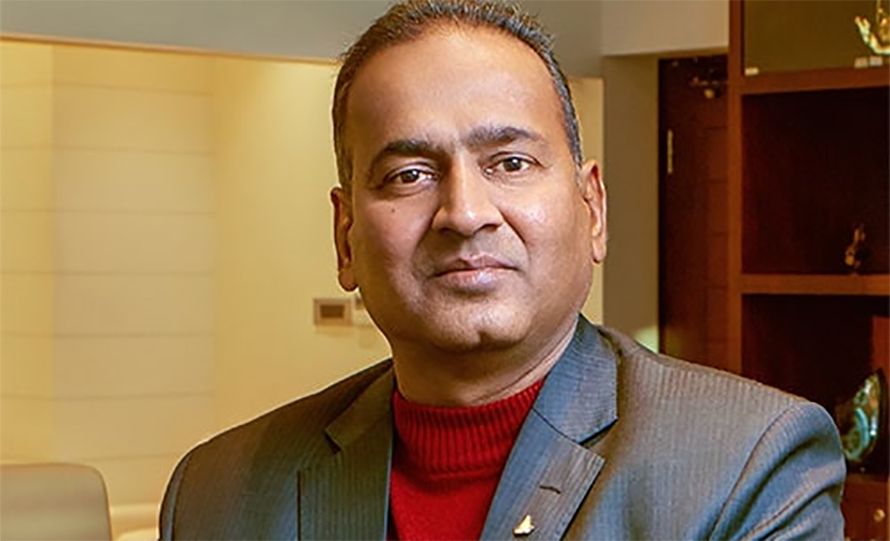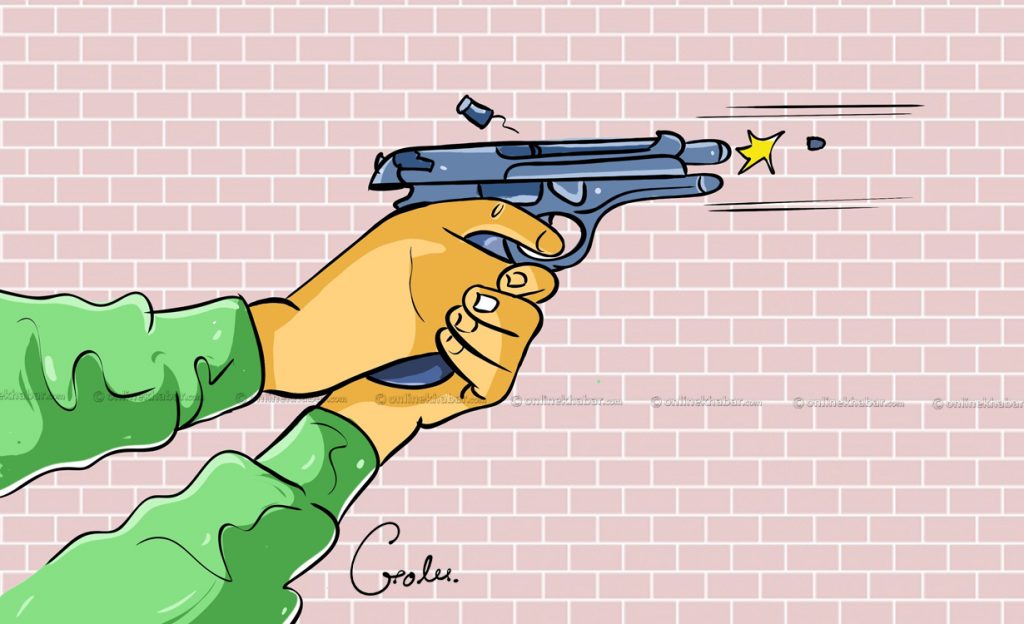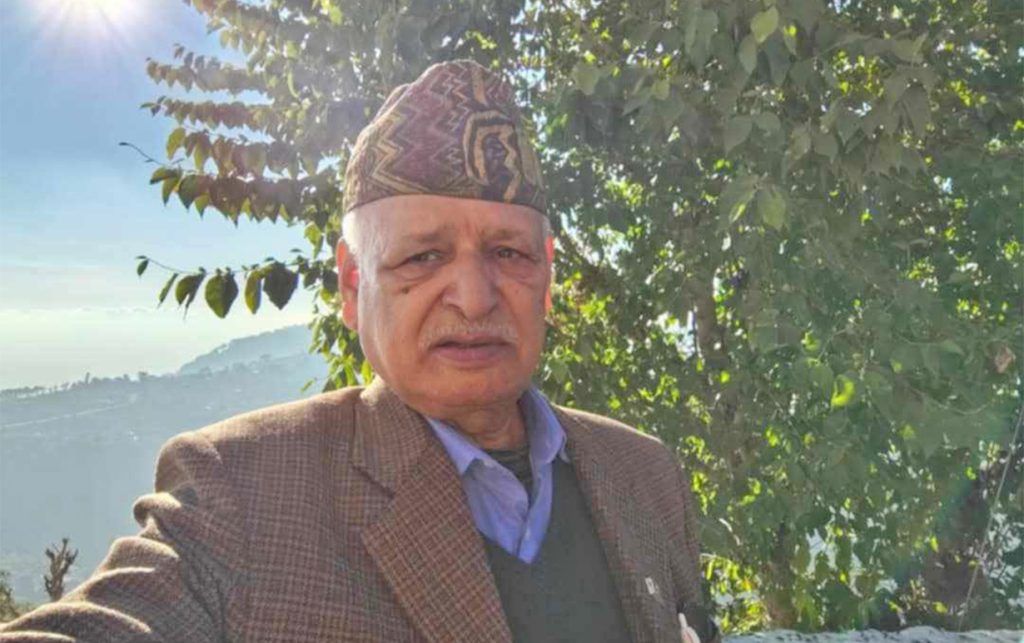
When a woman went to the police station asking the police to take action against Krishna Bahadur Giri, also known as Siddhababa, for rape, the police did not file her report. Instead, they ridiculed her and asked her to stop spreading lies about the famed religious leader and asked her to leave. Following this, the woman went to the Central Investigation Bureau (CIB) of Nepal Police on November 24, 2019, to report the case, which has been one of the most recent well-known examples of sexual violence in Nepal.
Before she went to the CIB, Nepal Police official reached her door steps. She had hoped they were there to report the case, but instead, they tried to book her in a drug case. The aim of the police was to give her mental torture so she should not report the case and had reached her apartment acting as a businessperson.
“Someone came to my apartment asking me to buy some soap, shampoo and powder. Following that, a team of police came in telling us we were buying and selling drugs,” says the woman.
This is a prime example of how survivors of sexual violence in Nepal are treated when they go to the police. There are many such examples when they are harassed by the police, which is considered the starting point of the justice process. Throughout the process, they continue even bigger challenges on the way to justice.
The long road to justice

After registering a complaint against Siddhababa, the CIB ordered the Metropolitan Police Range, Kathmandu, to conduct a further investigation after examining the health of the survivor. Then, the case was sent to the Sunsari District Police Office.
As this was happening, Siddhababa’s followers were pressuring the survivor to withdraw the complaint. Even the police wanted her to do so.
Yet, after a few days, Sunari Police filed the complaint, but no action was taken. Even though there is a legal provision that does not allow reconciliation in rape cases, the police started putting pressure on the survivor and Siddhababa to reconcile.
“When I went to see the incident report, Binod Sharma (then DSP) told me to forget what had happened and asked me to move on. He pressurised me to reconcile,” says the survivor.
—
On May 12, 2019, Binu Yadav went to the women’s cell of the Metropolitan Police Range in Kathmandu to report she had been raped by her boyfriend, Pradeep Kathayat. Police refused to file the case and instated asked the two to reconcile. That is what happened on June 2.
After the reconciliation, Yadav had to marry the man who she tried to file a complaint against. Following that, she was held hostage at Kathayat’s house in Ramechhap’s Manthali where Kathayat’s uncle, Pawan, tried to rape her on April 20, 2022.
Ramechhap police also refused to file her complaint. She had to come to the Police Headquarters in Kathmandu to file the complaint. The process took a total of three months.
Yadav, after she was raped, became pregnant. Following that, she even got an abortion under the pressure of Kathayat on April 3, 2019. The police, despite knowing this, made her sign the reconciliation paper without reading it out to her.
“They (the police) told me everything would be okay and asked me to sign the paper,” says Yadav, Kathayat’s family was putting unnecessary pressure on her.
Following that, Yadav, who was held hostage in Kathayat’s house, had sent a message to then Ramechhap police chief Basant Pathak stating she was being beaten up by her family. She was pleading for help.
Forgetting the obligation to protect privacy as per the law regarding sexual violence in Nepal, Pathak showed the message sent by Yadav to her abuser. This made things even more difficult for her.
“That made me stop trusting the police,” says Yadav.
Problems with the police

What can be seen from these examples is that if someone files a complaint against a high-ranking person and a person with political access, the police will not believe the words of the complainants. Due to this, the survivors feel discouraged to come out and tell their stories as they fear they will never be taken seriously.
Former Nepal Police DIG Hemant Malla agrees that the police do not side with survivors when it comes to complaints against high-ranking people with political access.
“Our social structure and psychology won’t allow us to stand against people in positions of power. This sadly has been adopted by many in the police force too,” says Malla.
A recent example of this is the complaint of marital rape and domestic violence filed by Bhuwan Giri’s wife. Giri is the judge at Kapilvastu District Court. Like the cases mentioned above, the police refused to register this case as well.
In fact, the police have still not registered the case pressuring Giri’s wife to reconcile with her husband. On the contrary, police immediately registered a case filed by Giri accusing his wife of stealing Rs 26,000.
“They tried to send me to jail before they registered my case,” she says. “I told them they could jail me, but they had to register my case before.”
But the police have not registered her case even now. When asked, police officials in Kapilvastu say investigations are ongoing. She tried to seek help from the National Human Right Commission, Women’s Commission and the Judicial Council. But, these bodies did not help her fully, she claims.
Failing to find help, on January 17, she staged a protest in front of the Supreme Court pleading for justice.
Reliving the trauma

Facts show the survivors of sexual violence in Nepal, who go to various agencies in search of justice, have to prove that they survived the crime every time. They have to live through the trauma and share it over and over again. Add social stigma and people passing comments, and most of the survivors feel a sense of shame and guilt, say some survivors.
“Complaints are rarely registered on time. Every time I go to a place, the staff changes. I then have to repeat the same story again. I have to go to them at a time when they feel convenient, but even then I can’t get any work done. When I have to repeat myself, it’s both traumatic and frustrating,” says Yadav, fighting her case for the last four years.
Yadav feels that the past four years have been so frustrating that she feels all her tears have dried up.
“When you tell the same story over and over again, you feel numb,” she says.
Some psychiatrists say if a survivor has to repeatedly explain an incident that caused them trauma, that might lead to depression over time.
Realising this threat, a report prepared by the National Judicial Academy in 2013 suggested the adoption of a one-stop solution method in the justice process for women subjected to sexual violence in Nepal.
“It is believed that the survivor’s medical examination, statement and all other necessary work should be done from one place,” says Raju Prasad Chapagain, an advocate involved in the research.
In 2010, the bench of Supreme Court justices Balram KC and Bharat Raj Upreti also ordered the introduction of a one-stop solution for survivors of rape and other types of sexual violence in Nepal. The order states necessary technology, laboratories and experts should be arranged in the hospitals of each district, gradually in a planned manner to bring justice to the rape survivors.
The intensity of insensitivity

Chapagain says that they suggested creating a one-stop solution for the survivors of rape and sexual violence in Nepal as they feel humiliated when they have to go to many places to express their pain repeatedly, which causes mental stress.
Nepal’s law also encourages the government to be responsible to the survivors, but various agencies seem to have turned a blind eye to it and have been insensitive.
For example, a woman from Janakpur who went to the District Police Office, Dhanusha, with a complaint of domestic violence complained that the police did not listen to her seriously.
“I went to the police station with bruises and torn clothes. The female officer at the station told me these things happen and asked me to forget about it and go home,” she says.
Following that, she went to the Women’s Commission but did not receive good support from the commission either. Now, the survivor, who left home with her five-year-old daughter, does not have a place to live as she is finding it hard to sustain herself in Kathmandu.
“If the police had registered my complaint, things would have been different I think,” she says.
Former DIG Malla says that the police do not have people who understand the seriousness of issues such as violence against women and sexual violence in Nepal.
“Yes, we do have a women’s cell, but that is not as effective as it should be,” he says.
Poor investigations

The Siddhababa case is a strong example of the police investigating sexual violence in Nepal poorly. There is enough proof that the police registered the case only after torturing the survivor.
But as a high-ranking police officer was a devotee of the self-proclaimed saint, the police officer’s wife tried to trick the survivor into withdrawing the case.
But, she refused to do so and the police did not investigate the case effectively. That meant the survivor’s chances of winning went down significantly. The police’s aim through the investigation was to prove Siddhababa was innocent and said the woman was mentally ill.
It is strange how the police took 29 statements to prove Siddhababa was innocent but only took two to prove the woman was correct.
Meanwhile, the police tried to defame the survivor by prominently including this on the charge sheet. Many argue this shows the infamy of the police. District Court, Sunsari acquitted Siddhababa on December 7, 2022, based on the same statement, which showed Siddhababa to be right and the survivor wrong.
The government attorney’s office, which has the responsibility of defending the survivors in court, also does the exact opposite at times. Binu Yadav who filed a complaint against her husband’s uncle for trying to rape her, found an initial reprieve as the court asked police to take the man into judicial custody.
The man then went to Patan High Court seeking a revision to the verdict. Wanting to know more, Yadav went to the government attorney’s office. But she got no answer. Later she found that the man had been released on bail.
“I have been there so many times but I still haven’t received the file of the verdict. I haven’t had the chance to read the verdict of a case, in which I am involved. How is this fair,” she says.
This went against the Crime Victims Protection Act 2018, which has given survivors of sexual violence in Nepal the right to receive all information related to the investigation, prosecution and judicial proceedings of their case.
Judge Arjun Prasad Koirala of the Sunsari District Court showed how rash he was when deciding to acquit Siddhababa. Sources say, he did not even consider it necessary to listen to the argument of the government attorney and the survivor. He acquitted Siddhababa after hearing a one-sided debate.
Following this, the government attorney’s office appealed for a revision to the verdict at Biratnagar High Court, which voided the Sunsari District Court verdict. After this, Siddhababa went to the Supreme Court appealing for a revision. The court did not support his appeal.
But, Siddhababa is free now as he has been seen sharing the stage with sitting ministers.
“This was bound to happen as the justice system didn’t show sensitivity to the survivor,” says advocate and rights activist Mohna Ansari.
For the woman surviving this high-profile case of sexual violence in Nepal, these three years have felt like an eternity. Firstly, she was accused of being mentally ill. Then, she was (still is) vilified in society for destroying Hinduism. Every day for three years, she has been enduring some kind of pressure and torture from the perpetrators.
People have also been approaching her husband offering him money to withdraw the case.
“They even told my husband that they’d arrange for us to stay abroad,” she says.
As the time of the hearing nears, the police and Siddhababa’s people continue to threaten her as well.
“They tell me anything can happen and try to scare me. They have also started to torture my kids at school,” she says.
“I feel I will have to fight this case until my last breath,” she says.
Problems everywhere

Ansari, a former member of the National Human Rights Commission, believes there is also a problem in the perspective of judicial institutions towards the survivors of sexual violence in Nepal.
“Our justice system is still traditional. This causes more pain to the survivors. Moreover, our judicial institutions do not even show sympathy towards them,” says Ansari.
Advocate Chapagain says that since the day she came out to seek justice, the woman has been subjected to many insults as time and again she has been obstructed during the process to seek justice.
During the hearing of her divorce case, Binu Yadav had to be humiliated by Badri Prasad Oli, the district judge of Ramechhap. An example of how unhelpful the justice system is for the survivors of sexual violence in Nepal is the case of Yadav being forced to drink poison in the courtroom.
Judge Oli called Yadav to his chamber and said, “If it can be settled by making some transactions, there is no point in fighting a case like this.”
On April 20, 2022, after Yadav said that she would not settle, Judge Oli said in the courtroom, “You are beautiful. You are young. How can you seduce such a rich boy and do this, you will find any boy of your own race. I will make them give you compensation as part of the divorce and you can go to a higher court if you are not satisfied.”
“If when I had proof that I was being beaten and had been raped, the police and the court didn’t help me. I drank the poison after I felt helpless,” says Yadav, adding she will continue to fight this case until she can.
This story was translated from the original Nepali version and edited for clarity and length.


























